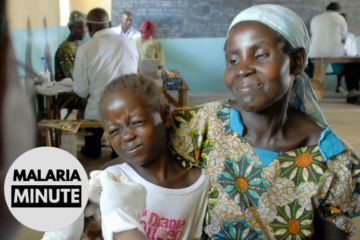The Latest Malaria News, in 60 Seconds.
Researchers find that SUB2, a malaria parasite enzyme, helps the parasite survive in the human host and new research characterises cerebral malaria infection in adults and children.
Malaria Minute on iTunes and Spotify
Transcript:
For the malaria parasite to survive in the human host, it must invade and replicate inside red blood cells. During this process, a number of parasite proteins are shed. Researchers have now identified that a malaria parasite enzyme, called SUB2, is a critical mediator of that shedding process and, in modified parasites without the enzyme, the parasite either failed to gain entry to the blood cell or did so and died soon after. Interventions targeting the SUB2 enzyme may, therefore, help to prevent the malaria parasite from replicating in the blood, and thus preventing the onset of symptoms.
New research has characterised the nature of cerebral malaria infection in adults and children, a common presentation of the severe form of the disease. Researchers found that severe hypoxia was associated with adult death, while increases in brain volume were associated with child death, supporting the need for different, age-specific treatments.
Sources:
The Malaria Parasite Sheddase SUB2 Governs Host Red Blood Cell Membrane Sealing at Invasion
Image Credits: The Francis Crick Institute [Blog Post]
Scientific Advisor: Katharine Collins, Radboud University Medical Centre



1 Comment
Comments are closed.